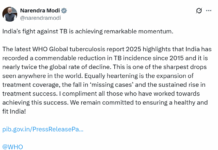 WASHINGTON: Wikipedia page views can predict disease outbreaks, including dengue fever and influenza, around the globe nearly a month before official health advice, according to new research.
WASHINGTON: Wikipedia page views can predict disease outbreaks, including dengue fever and influenza, around the globe nearly a month before official health advice, according to new research.
Analyzing such online trends could help scientists stay one step ahead of outbreaks around the globe, researchers said.
Researchers from Los Alamos National Laboratory successfully monitored influenza outbreaks in the US, Poland, Japan and Thailand, dengue fever in Brazil and Thailand, and tuberculosis in China and Thailand.
The team was also able to forecast all but one of these outbreaks (tuberculosis in China) at least 28 days in advance.
The results suggest that people start searching for disease-related information on Wikipedia before they seek medical attention.
The research shows the potential to transfer models across different regions; that is, one can “train” a computer model using public health data in one location and implement the model in another region.
For example, researchers could create models using data from Japan to track and forecast disease in Thailand. This is particularly important for countries that do not offer reliable disease data, researchers said.
“A global disease-forecasting system will change the way we respond to epidemics. In the same way we check the weather each morning, individuals and public health officials can monitor disease incidence and plan for the future based on today’s forecast,” said Dr Sara Del Valle, who carried out the study.
The study was published in the journal PLOS Computational Biology. -PTI






